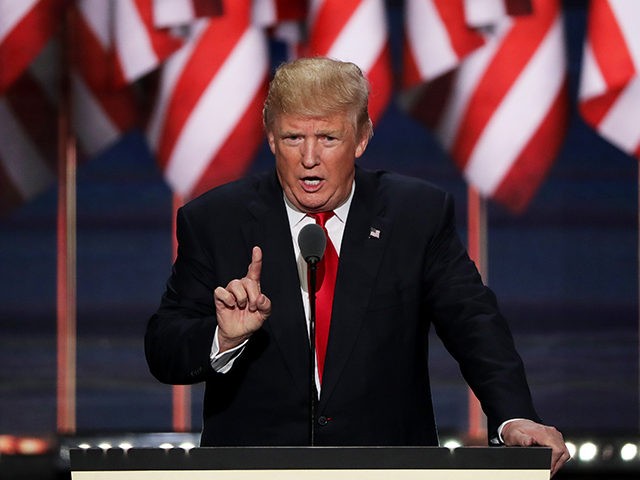Franklin Foer writes at Slate about GOP nominee Donald Trump’s “authoritarian” and “un-American” acceptance speech at the Republican National Convention on Thursday.
The sense of crisis is everything for Trump—even if it’s largely invented. His depiction of darkness justifies his candidacy, the need to violently shake the system. His ability to conjure fear is what distinguished him from all those career pols he has vanquished. And it suits his ego. He turned down every entreaty to run for president, beginning in the late 1980s, waiting for the moment when the sense of despair justified his entry into the game. He is the chieftain of destiny. Everything will change for the good with his delivery of the oath of office. Americans will finally wake up …
Trump uses the phrase America First, only dimly aware that he is repeating a phrase from the interwar years and indifferent to its historic resonances. But he compulsively echoes that period—another time when leaders described the world in apocalyptic terms. He harps on the need for national regeneration; he decries the disorder that cannot be remedied by conventional politics; he touts faith in what the historian of fascism Robert O. Paxton calls “the efficacy of the will.” All we need to do is start believing.
There was a strangely foreign quality to Trump’s address, despite its overt nationalism. He didn’t ground his narrative in American history; he didn’t invoke any leaders or episodes from the national past. Indeed, he didn’t even mention the troops in uniform, a stock trope of acceptance speeches. Although he repeatedly led the crowd in chanting USA, USA, there was little sense of American exceptionalism—the pluralistic form of American nationalism that forms the bipartisan basis for our political rhetoric at the presidential level. No talk about a light unto the nations. Aside from his quite striking defense of the LGBTQ community, there was nothing that hinted at expanding freedom to new quarters of the country. Everything in his speech pointed in the other direction—away from American leadership abroad, away from minorities seeking more respectful treatment in the national conservation.
Read the rest here.

COMMENTS
Please let us know if you're having issues with commenting.